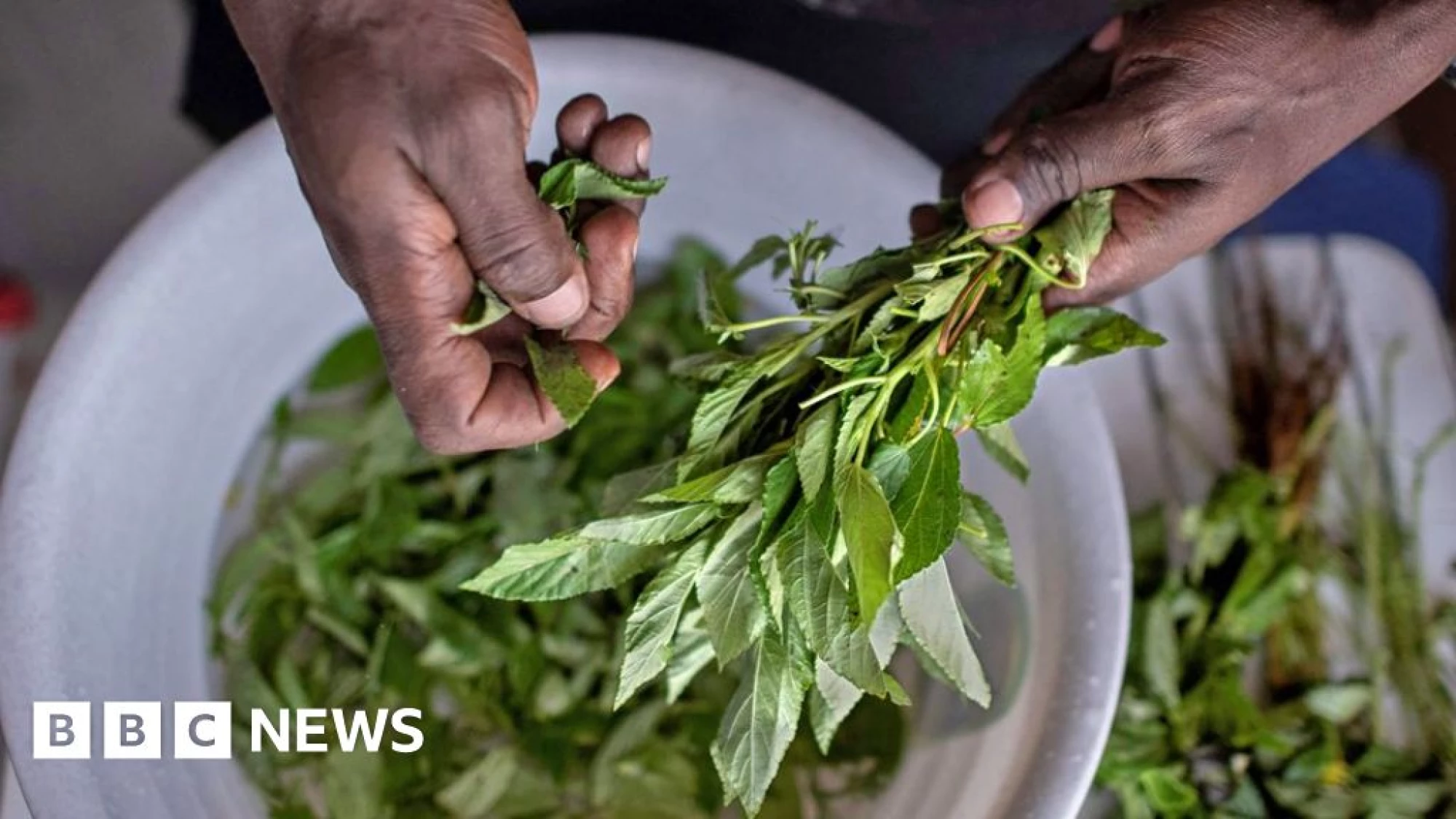Why Kenya's forgotten indigenous vegetables are proving a culinary hit

Local indigenous greens grow in popularity despite a ban on farmers swapping or selling seeds.
Watch LiveBritish Broadcasting CorporationHomeNewsSportBusinessInnovationCultureArtsTravelEarthAudioVideoLiveHomeNewsIsrael-Gaza WarWar in UkraineUS & CanadaUKUK PoliticsEnglandN. IrelandN. Ireland PoliticsScotlandScotland PoliticsWalesWales PoliticsAfricaAsiaChinaIndiaAustraliaEuropeLatin AmericaMiddle EastIn PicturesBBC InDepthBBC VerifySportBusinessExecutive LoungeTechnology of BusinessFuture of BusinessInnovationTechnologyScience & HealthArtificial IntelligenceAI v the MindCultureFilm & TVMusicArt & DesignStyleBooksEntertainment NewsArtsArts in MotionTravelDestinationsAfricaAntarcticaAsiaAustralia and PacificCaribbean & BermudaCentral AmericaEuropeMiddle EastNorth AmericaSouth AmericaWorld’s TableCulture & ExperiencesAdventuresThe SpeciaListEarthNatural WondersWeather & ScienceClimate SolutionsSustainable BusinessGreen LivingAudioPodcastsRadioAudio FAQsVideoLiveLive NewsLive SportHomeNewsSportBusinessInnovationCultureArtsTravelEarthAudioVideoLiveWeatherNewslettersWatch LiveForgotten 'weeds' prove a culinary hit in Kenya2 days agoShareSaveBasillioh RukangaBBC News, NairobiShareSaveAFP/Getty ImagesMrenda, being prepared here by a chef in Nairobi, has many more micronutrients than cabbageOnce dismissed as wild weeds and a "poor man's food", indigenous leafy vegetables in Kenya are now becoming much more common - grown on farms, sold in markets and gracing the menus of restaurants.
At the busy Skinners Restaurant in Gachie just outside the capital, Nairobi, one employee says demand for "kienyeji" - as all local vegetable varieties are known - is higher than for other greens.
"Many people ask for kienyeji when they come here," Kimani Ng'ang'a tells the BBC, despite the fact the restaurant charges extra for them as he says they are harder to source.
Vegetables like cabbage, spinach, kale and spring greens, introduced by colonial authorities before the 1960s, are more readily available and cheaper. Spring greens are known as "sukumawiki", meaning "stretch the week" in Swahili, reflecting how they have become a daily staple.
But diners in Gachie are part of the growing wave of Kenyans who see the benefits of eating local, organically produced nutrient-rich varieties of greens.
https://www.bbc.com/news/articles/cjdzm88l8y0o
Rating: 5